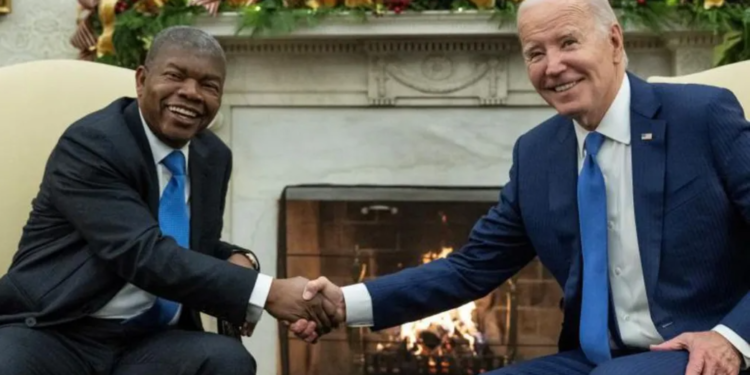Dec 3, 2024 Story by: Editor
Joe Biden has embarked on his first visit to sub-Saharan Africa as U.S. president, amidst speculation about the future of U.S.-Africa relations, with Donald Trump preparing to assume office in January. Biden’s visit to Angola, a country rich in oil and minerals, emphasizes U.S. interest in fostering trade and infrastructure investments, a move some analysts see as a challenge to China’s growing influence on the continent.
Edmilson Angelo, an Angolan analyst, described the relationship between Angola and the U.S. as “a perfect marriage of convenience” during his comments to the BBC.
Biden’s trip marks the first visit by a U.S. president to Angola, reflecting an improvement in ties between the two nations. Historically aligned with China and Russia, Angola, under President João Lourenço‘s leadership since 2017, has shifted towards non-alignment and pragmatic diplomacy. Alex Vines of Chatham House highlighted that Angola’s foreign policy under Lourenço has embraced “pragmatic multipolarity.”
A cornerstone of Biden’s African agenda is the Lobito Corridor, a 1,344-kilometer railway project linking the Democratic Republic of Congo (DRC), Zambia, and Angola to facilitate the transport of minerals like cobalt, lithium, and copper. This infrastructure will connect Africa’s resource-rich regions with markets in Europe and the U.S. The Lobito Corridor Investment Promotion Authority (IPA) described the U.S. involvement as “the first alternative from Washington DC to China’s Belt and Road Initiative.”
Helaina Matza of the U.S. Department of State outlined the project’s scope, revealing that the G7 countries committed over $600 billion to global development initiatives, including this railway.
President Lourenço praised the investment, rejecting colonial-era comparisons, stating that minerals are now exported “in the interest of the African countries,” unlike during colonial exploitation. However, Anthony Carroll of the U.S. Institute of Peace noted that policies promoting local processing of raw materials could impact the project’s economic potential, although copper’s global demand remains steady.
Angola’s rebuilding efforts since the end of its civil war in 2002 have involved significant investments in infrastructure. While China initially financed a portion of the Benguela railway through a rail-for-oil deal, Lourenço acknowledged its shortcomings, labeling it “disadvantageous” for Angola.
The U.S. aims to provide an alternative to Chinese-backed projects while addressing global demand for green energy minerals. The ongoing development of the Lobito Corridor, supported by the U.S. Development Finance Corporation and African Development Bank, seeks to promote trade and agriculture, benefiting communities along the route.
As Biden’s visit concludes, uncertainties remain about whether the Trump administration will continue his initiatives. Dr. Vines noted the project’s alignment with U.S. competition with China might ensure its survival, regardless of the changing political leadership in Washington.
President Lourenço optimistically stated, “Powers come and go, so all we have to do is to be ready to work with those that will be in power,” signaling Angola’s readiness to adapt to evolving partnerships. Source: BBC

















